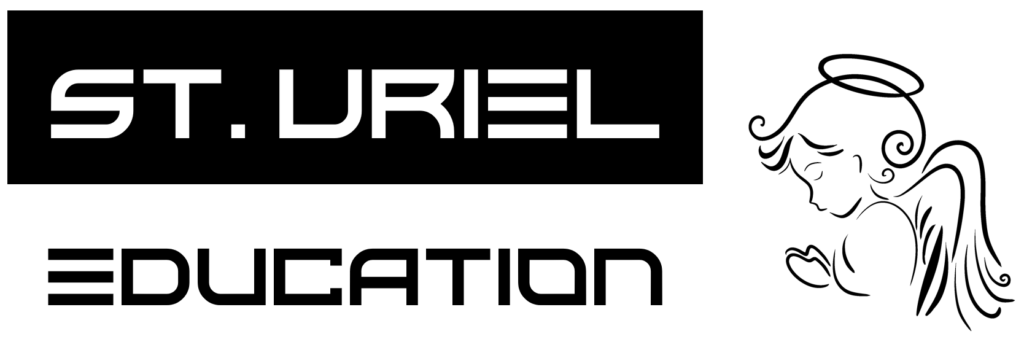St. Uriel’s
ESG EduTourism
St. Uriel’s ESG (Environmental, Social, and Governance) Edutour Experiences are specifically tailored to the needs of Schools, Corporates, Government Agencies and Non-Profits.
| Duration | Locations |
|---|---|
| 6-days | Singapore |
| 8-days | Thailand |
| 14-days | Singapore & Thailand |
What is ESG EduTourism?
Tourism like every business, is deeply intertwined with Environment, Social, and Governance (ESG) concerns. Whether it is for pleasure or for work, tourists leave an impact on the places they visit. It makes sense, therefore, that a strong ESG proposition can create value — and St. Uriel offers a unique framework for organizations and individuals to understand and contribute positively towards sustainability each time they travel.
St. Uriel’s ESG Edutour experiences (ESG EduTourism) merges education with tourism, and focuses on specific, practical and real ESG value creation at various touchpoints during every journey that we organize. St. Uriel’s ESG Labels help you to select specific tour itineraries that meets your ESG goals; St. Uriel’s Impact Assessment is a framework that identifies key ESG goals during your journey; and St. Uriel’s ESG Experiences are sample itineraries that you can enjoy and achieve ESG goals at the same time.
Why ESG EduTourism matters to you?
Whether you’re an individual, a school, or an organization that is for-profit or non-profit, you are expected to be a responsible citizen of the world and doing so provides you with direct benefits.
Thinking and acting on ESG in a proactive way has lately become even more pressing. The US Business Roundtable released a new statement in August 2019 strongly affirming business’s commitment to a broad range of stakeholders, including customers, employees, suppliers, communities, and, of course, shareholders. ESG-oriented investing has experienced a meteoric rise. Global sustainable investment now tops $30 trillion—up 68 percent since 2014 and tenfold since 2004. The acceleration has been driven by heightened social, governmental, and consumer attention on the broader impact of corporations, as well as by the investors and executives who realize that a strong ESG proposition can safeguard an organization’s long-term success. The magnitude of investment flow suggests that ESG is much more than a fad or a feel-good exercise.
So does the level of business performance. The overwhelming weight of accumulated research finds that companies that pay attention to environmental, social, and governance concerns do not experience a drag on value creation — in fact, quite the opposite. A strong ESG proposition correlates with higher equity returns, from both a tilt and momentum perspective.
Better performance in ESG also corresponds with a reduction in downside risk, as evidenced, among other ways, by lower loan and credit default swap spreads and higher credit ratings.
Whichever way you look at it, caring for sustainability through St. Uriel’s ESG framework and carefully crafted St. Uriel ESG EduTourism will benefit you, your organization, and the world we live in.
How do we deliver value through St. Uriel ESG Experiences?
To deliver St. Uriel ESG EduTourism Experiences, we actively seek global partnerships with stakeholders in the tourism, entertainment and education sectors that share a common vision – which is to create shared value, that not only enhances the competitiveness and enterprise value of each party, but also promotes the well-being of the communities and societies for which we are a part of. Partners are expected to recognize and integrate ESG (Environment, Social, Governance) aspects into the St. Uriel ESG EduTourism Experiences.
To be specific, we will only select partners and vendors that have implemented aspects of the following:
1. Global Reporting Initiative (GRI)
The GRI is an international independent standards organization that helps businesses, governments and other organizations understand and communicate their impacts on issues such as climate change, human rights and corruption. GRI provides the world’s most widely used sustainability reporting standards (the GRI Standards).
Under increasing pressure from different stakeholder groups – such as governments, consumers and investors – to be more transparent about their environmental, economic and social impacts, many companies publish a sustainability report, also known as a corporate social responsibility (CSR) or environmental, social and governance (ESG) report. GRI’s framework for sustainability reporting helps companies identify, gather and report this information in a clear and comparable manner.
2. United Nations (UN) Global Compact
St. Uriel shall engage and partner with organizations that are signatory to, or actively abiding by, the Ten Principles of the UN Global Compact. Organizations who are able to report on their detailed actions to embed the Ten Principles into their business strategies and operations will be preferred over those that do not have such reports.
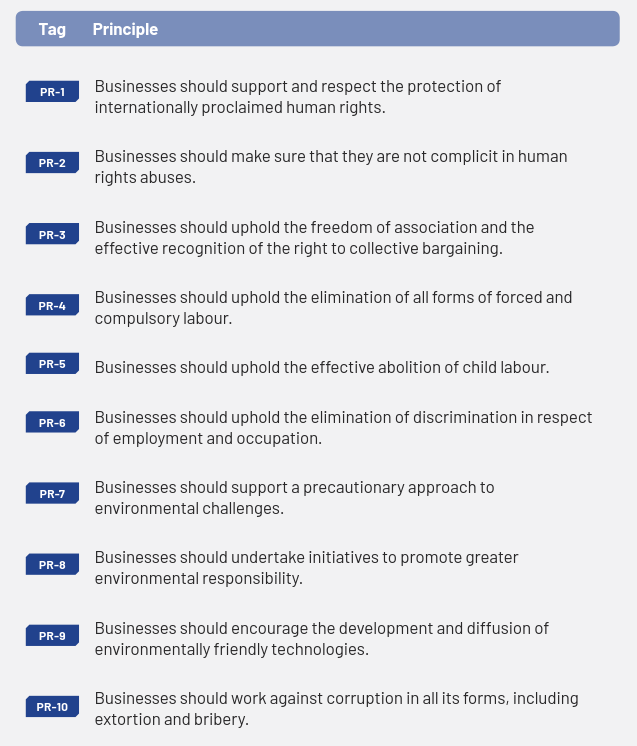
3. UN Sustainable Development Goals (SDGs)
St. Uriel shall engage and partner with organizations that supports the 2030 Agenda for Sustainable Development and the 17 SGDs, with a priority on SDG 3 (ensuring healthy lives and well-being for all at all ages), SDG 4 (ensuring inclusive and equitable quality education and lifelong learning), and SDG 16 (promoting peaceful and inclusive societies).
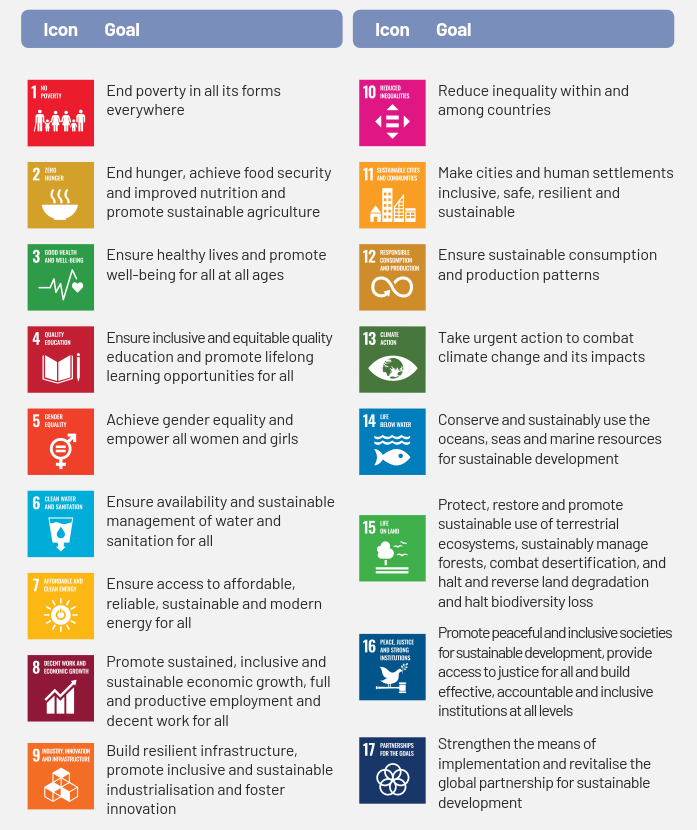
| ESG Labels | Experiences & Programs |
|---|---|
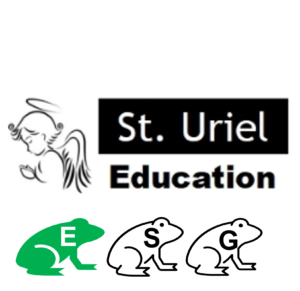 |
|
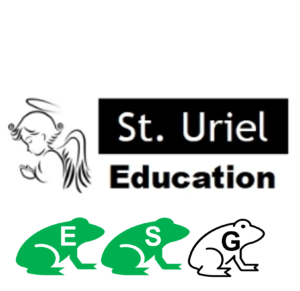 |
|
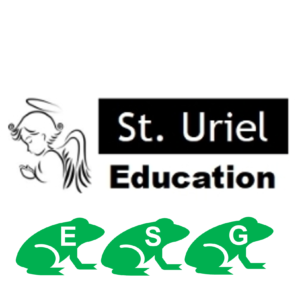 |
|
St. Uriel’s ESG Assessment Metrics
St. Uriel’s ESG Philosophy is focused on “Doing Good, Feeling Good” experiences where we give a higher weightage to creating valuable social impacts together with you and the other education and tourism stakeholders. The rationale is that organizations are already familiar with or have good access to knowledge and tools for good governance, and environmental sustainability. However, they have less opportunity to seek out the disadvantaged in society and to develop meaningful contributions towards a more inclusive society. Hence St. Uriel’s ESG Edutour experiences will fill in this gap by carefully developing helpful programs with the community-in-need (the disabled and disadvantaged) and connecting them with the community-of-service (your organization).
In developing St. Uriel’s ESG Edutour experiences, we endeavor to work with experience providers who actively supports the United Nations (UN) Global Compact, UN Sustainable Development Goals (SDGs), and who preferably also report on sustainability initiatives using the GRI Standards. As an example, we have outlined tour touchpoints and several aspects of the ESG, including but not limited to those in the table below.
| TOUR TOUCHPOINTS | ENVIRONMENTAL (30%) | SOCIAL (60%) | GOVERNANCE (10%) |
|---|---|---|---|
Transportation
|
|
|
|
| Accommodation |
|
|
|
| Food |
|
|
|
| Activities |
|
|
|
| Your Organization Itself |
|
|
|
